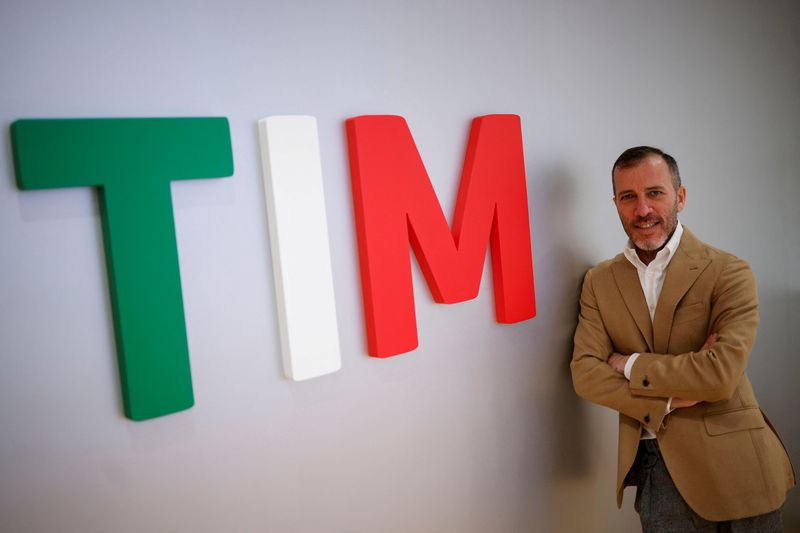By Elvira Pollina
MILAN (Reuters) -Telecom Italia (TIM) shareholders on Tuesday handed CEO Pietro Labriola a new three-year term to press ahead with a revamp centred on a government-backed sale of the former phone monopoly's fixed-line access network to U.S. fund KKR.
The decision of top investor Vivendi (EPA:VIV) to abstain from backing any slate of nominees despite its opposition to the deal was key to the final outcome at the company's annual general meeting (AGM), held virtually.
With an attendance rate of only 50.8%, the French media giant could have obstructed Labriola's reappointment if it had thrown its 24% stake behind nominees put forward by minority investor Merlyn Partners, figures provided by TIM showed.
In a statement after the vote, Labriola, who has been running TIM for two years, praised the "sense of responsibility of shareholders who directly or indirectly ensured continuity".
The outgoing board slate headed by Labriola won six out of nine seats on the new board, including a spot for the chairman of state lender CDP, which holds a 10% stake in TIM.
The slate won 48.9% of votes at Tuesday's AGM.
Merlyn Partners and Bluebell Capital Partners, which secured respectively 2.4% and 1% of shareholder votes at the AGM, had both sought to challenge Labriola's reappointment. They won respectively two seats and one seat.
Both have been questioning the merits of the KKR deal, worth up to 22 billion euros ($23.4 billion), in a bid to attract the backing of Vivendi, which has been seeking a higher price for TIM's most valuable asset.
Shares in TIM were 3% up by 1430 GMT, with Equita analysts noting the outcome removes a source of uncertainty over the execution of TIM's planned revamp, which is key for the potential re-rating of the battered stock.
LEGAL BATTLE
Vivendi however voiced its frustration with the way TIM has been run and will continue to fight the KKR deal in court.
With its abstention, it was also key to a rejection of the telecom group's remuneration package and stock option plans for top management, which needed an absolute majority for approval.
Vivendi, which first invested in TIM in 2015, quit the board last year after a round of fruitless talks with Prime Minister Giorgia Meloni's government over the future of a group whose assets are seen as strategic.
The Paris-listed company has repeatedly written down the value of its stake in TIM to book a 75% loss on its initial 4 billion euro investment.
Labriola, who has come under pressure following a record stock price plunge last month, has defended the network sale as the only way to give TIM a fresh start, cutting its heavy debt.

He expects to finalise the sale this summer, subject to European Union regulatory approval.
($1 = 0.9398 euros)